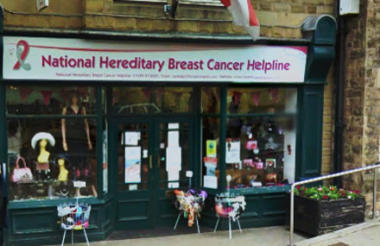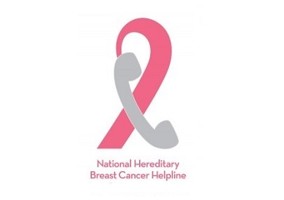The case of the charity founder who mistakenly paid herself £31,000 throws up a lot of questions for charities, says David Ainsworth.
This week has seen some pretty trenchant criticism of Wendy Watson, the hapless founder of the National Hereditary Breast Cancer Helpline, who paid herself £31,000 without realising that she was not supposed to.
It throws up several interesting questions for the charity sector. Should we make it harder to set up charities? Should we be readier to shut down the ones which are not performing? How can we spot the poor performers more readily? And how can we make sure that we reduce the number of trustees who are as clueless as Wendy Watson?
What actually happened?
First, for those who haven’t read the news, here’s what happened.
A few weeks ago, the Charity Commission issued its first official warning to Watson’s charity. It was belatedly picked up by the nationals when it was discovered Watson had paid herself £31,000.
Watson is the founder of the charity and says she didn’t realise it was wrong to pay herself while she was a trustee. She doesn’t seem to have been too clear that she was a trustee. The decision was apparently taken by her accountant.
The charity is also running a chain of shops which don’t seem to make any money, bringing in £1m or so to pay for a relatively small helpline service for people with breast cancer.
The charity is a damaging failure, essentially, but one where there appears to have been no malice. Watson is the picture of a good-hearted charity founder who suddenly discovered she was outside the limits of her competence. She still appears unclear about what she actually did wrong.
I feel rather bad for Watson in this situation – just as I feel a little bit for the trustees of Kids Company. If you try to do good and fall over your feet, you are judged much more harshly than if you just sat on your hands and did absolutely nothing of any use to anyone. That feels wrong to me.
It feels as if we are currently bad at stopping people getting it wrong, but good at complaining afterwards. And we tend to complain much more about well-meaning incompetence than genuine crookedness.
Why is Wendy Watson getting more criticism that someone who started their charity to launder funds from illegal brothels? Or someone who signed a deal with their mate to ensure that all the money fundraised went back into their mate’s charity? At least she was trying to help.
I have a lot more to say on this subject, but the main point is one about culpability. The charity sector is a chaotic one, full of people starting little initiatives, without experience, and finding their ideas peter out as their enthusiasm or the money falls away.
But from time to time we see new charities that make a huge difference, and completely upset the established order. What we need to do is ensure that we provide more help to the Watsons of the world, shut them down earlier if they are ineffective, and get better at spotting winners and funding effective interventions.
So what would I do?
Better and simpler communication with trustees
CC3: The Essential Trustee is a good document, but at 12,500 words it is only slightly shorter than Macbeth, or the Communist Manifesto. The Wendy Watsons of the world need some briefer and pithier instruction to set them on their way. That cannot just be the job of the Charity Commission – although it would be good if the regulator had an email address for every trustee. The sector must support this.
More initiatives to improve governance
And much more emphasis on training and support. At the moment the institutions supporting trustees are relatively weak, and they need a boost. The discussion about whether or not to pay trustees sucks all the oxygen out of the debate, when there are a hundred other more important discussions about improving trusteeship. Here’s a thought. No one is going to change the law to make it normal to pay trustees. Stop fighting a straw man and get on with making things better.
A change in the law
This isn’t likely to happen, but it would be a big help. At the moment whether you are a charity or not depends on your purposes, not your actions. The law essentially says that you are a charity – indeed, have to be a charity whether you like it or not – if you are trying to do good. Whether you succeed or not is largely an irrelevance. Let’s change that, and base charitable status on your results.
Broadly, I wouldn’t make it much harder to set charities up. It’s really important to preserve the instinct of people to do good, and I think the “too many charities” people have largely got the wrong end of the stick. But it would at least allow us to weed out the people with absolutely no prospect of success.
Shut down charities which are wasting time
While I feel for Wendy Watson, she should have had her charitable status taken away, and her charity shut down. The Charity Commission – for reasons I fully understand – finds it difficult to just close poorly performing charities.
As above, I don’t think we should make it harder to set organisations up, but there should be much stronger action against those who are doing poorly.
Spot poor performers more readily
The Charity Commission spotted Wendy Watson’s charity after a random sample. In other words, there are probably lots more poor performers not being spotted.
One thing that’s clear from writing about the sector is that you can run a charity egregiously badly for a long time before anything happens. It’s not surprising that the public isn’t thrilled about this.
I’ve written before about the need to audit a charity’s outcomes each year. I don’t understand why we spend thousands of pounds on checking financials, but barely pay any attention to public benefit. Charities exist to deliver public benefit, and there should be an audit each year to assess whether they do so.
I’m not talking about incredibly complex impact assessments. Just make it compulsory that any charity with significant funding is delivering real and tangible public benefit. I tend to think that while this will cost the charities themselves money, they will more than get it back in terms of improved results. Plus, we the public will have a much clearer method of identifying the time wasters.
And while we’re on that subject, let’s have a Charity Navigator (an online tool in the US that benchmarks charity effectiveness for the benefit of donors) for the UK. The public want a simple tool for understanding which charities are doing well. If the sector does not give them one, they will continue to rely on Gina Miller.
Related articles











